Wagner: Götterdämmerung (Haenchen)
Introduction
The final part of Wagner`s epic cycle of music dramas, consisting of a prologue and three acts, directed by Pierre Audi, and staged in Amsterdam in 2004.
*description copied from my other review - well, the plot`s the same isn`t it.
The Prologue begins with the three Norns (personifications of the past, present and future), weaving their ropes (symbolic of fate) and prophesising dire things for the humans and Gods we have met previously.
Siegfried and Brünnhilde are now together, madly in love and living together on the rock to which Brünnhilde was banished in Die Walküre. Being a hero, Siegfried cannot stay still for long and departs to perform the deeds for which heroes are known. He comes across the domain of Günther, who lives with his sister Gutrune, and `protector` Hagen (son of Alberich, the dwarf).
Hagen has long held a desire to kill Siegfried and claim the Rheingold for himself (the treasure his father stole at the beginning of the saga) and hatches a plot to get Siegfried to forget Brünnhilde and marry Gutrune, while Günther can hitch up with Brünnhilde. He gives Siegfried a potion which makes him forget his first bride and fall in love with Gutrune, and then persuades him to wear the Tarnhelm (a helmet that makes you appear as someone else) and walk through the fire around Brünnhilde`s rock pretending he`s Günther. In this disguise, he steals the Ring from Brünnhilde, and claims her as `Günther`s` bride.
Brünnhilde is naturally annoyed by this development, and when she is brought back to Günther`s house, she realises what has happened and vows to have her revenge, revealing to Hagen that Siegfried is vulnerable to attack from behind, being protected by her own magic everywhere else.
The men go on a hunt, and Hagen takes the chance to plunge his spear into Siegfried`s back once Siegfried has admitted to having fallen in love with Brünnhilde when they first met . Siegfried dies, but not before coming to his senses and realising what he has done to his wife.
When his body is returned, Brünnhilde realises she has been tricked and that Siegfried was innocent all along, and reverting to her status as a Valkyrie, claims the ring and throws herself onto Siegfried`s funeral pyre to cleanse the curse and be with her husband.
Hagen tries to rescue the Ring from the Rheinmadens but fails.
The Rhein floods, Valhalla is destroyed by the fire which once encircled Brünnhilde, and humans are left to forge their own destinies.
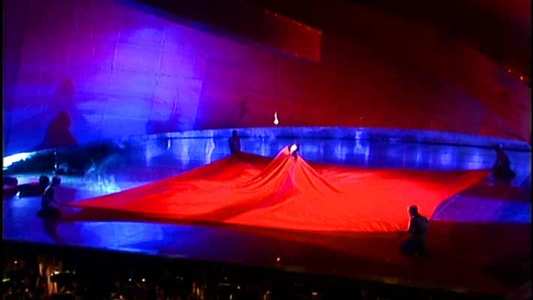
Video
Region-free NTSC 16:9 anamorphic transfer, which for a 1999 production is very well done indeed, although there are moments the glare of the brighter lighting effects gets the better of the DVD. There are also some problems when the blue lighting is more prominent, but overall these problems are not significant.
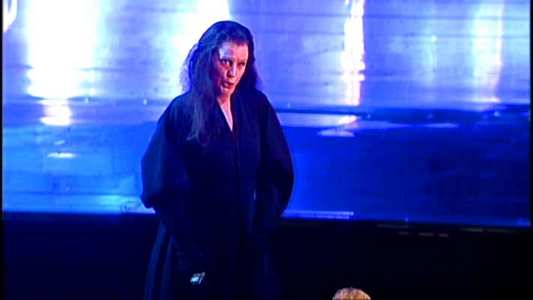
Audio
Sound balance (even on the DTS track) is a little disappointing, with several chunks of the orchestral music overpowering the singers completely (Jeannine Altmeyer`s lower register suffering from this more noticeably than anyone else). There is also a slight problem with the trio at the end of Act II, where the bias leans towards Kurt Rydl (fine voice though).
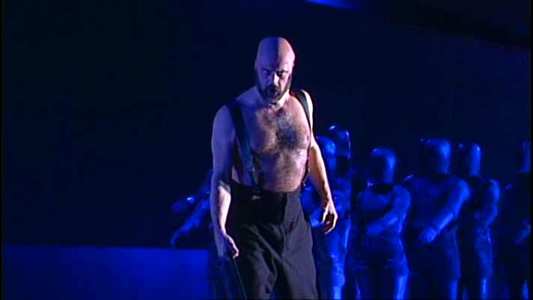
Features
The expected discussion about the musical aspects of the opera (which we have had for the other episodes, together with the fine documentary which accompanied `Das Rheingold`) is sadly missing, and so we are left with a `choose your favourite scene and explain why` session which lasts for 7 minutes and is rather pointless.
Subtitles are in English, French, German,Spanish, Italian, Dutch and Japanese.
Within the booklet, there is also a short essay on the opera by Klaus Bertisch.
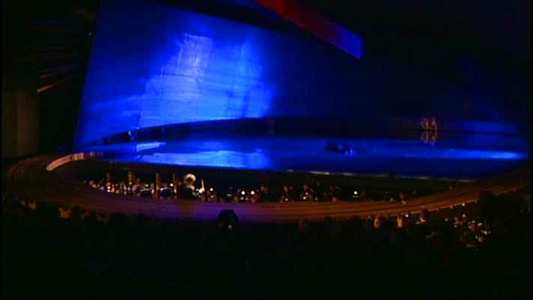
Conclusion
And so we come to the end of another Ring, which is markedly more successful and satisfying than that the Barcelona production (also reviewed).
Audi`s staging for this last chapter is more reserved than the others, leaving a large section of flat stage behind the orchestra (a lot easier for the chorus to move around on), but still keeping the sweep of the ring structure around the band, seemingly moving it up and out of the rear of the theatre. I`m sure it all looked a lot more impressive live, but you still gain a hugely interesting viewpoint on the whim of the TV director.
The costumes by Eiko Ishioka are, as usual, very impressive, and his idea of Hagen`s army being completely faceless is a little unnerving. Also, the Rheinmaidens are still dressed in their skin-tight rubber suits, but I really wish they weren`t.
Musically, Hartmut Haenchen produces just the right amount of dramatic intensity, and the Netherlands Philharmonic play very well indeed, although overall, I preferred the sound of the Rotterdam Phil in their parts of the cycle. The larger orchestra interludes though (notably the Rhein journey and the funeral music) are as good as you would want them with very little on stage to get in the way of the music (there is definitely no surfing down the Rhein nonsense in last year`s ENO production)..
Again, Heinz Kruse is a marvellous Siegfried vocally, but his acting leaves much to be desired, with barely a flicker of an expression on his face throughout. He doesn`t even seem remotely startled about being killed, but I`m sure a slight smile crossed his lips when meeting Brünnhilde again following his treachery. So there is hope I suppose.
Kurt Rydl (Hagen) gives a storming performance, and is a vast improvement over his Hunding in `Die Walküre` (ironically enough, the character that kills Siegfried`s father), and is almost matched by Wolfgang Schöne (Gunther) who also has a hugely powerful voice, but with a slow vibrato you could drive a bus through.
It was also great to see Anne Gjevang sing Waltraute following her role as Erda in the previous operas. She does a fine job, despite having to go through some rather embarrassing choreography when attached to her Valkyrie wings.
Jeannine Altmeyer (Brünnhilde) is wonderful. She was considered to be at the peak of her Wagnerian powers over a decade before this recording, but had obviously not lost any of her form. Her performance here beats everything else she has done in this Ring (she sounded a bit croaky in `Die Walküre`), and her final immolation scene is hugely emotional, but it`s a great shame the fire effects we have seen throughout the cycle weren`t put to use.
Despite the woeful lack of worthwhile extras, this is a fitting conclusion to a fine Ring Cycle, and one which certainly stands up well against the growing number of DVD versions being made available.
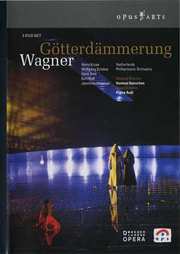
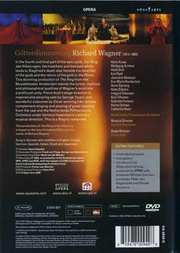




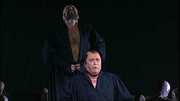
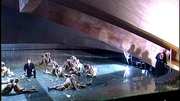
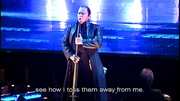
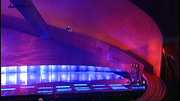
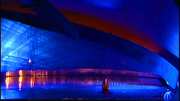
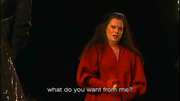
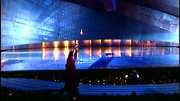
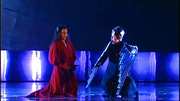
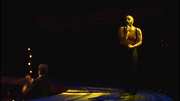
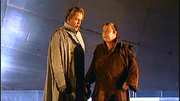
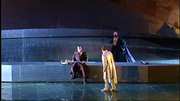
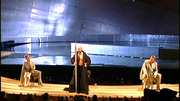
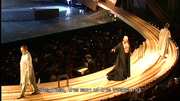
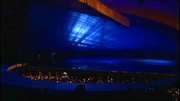
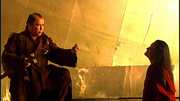
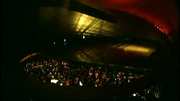
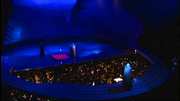
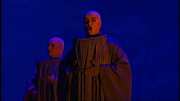
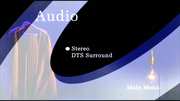
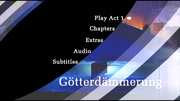






























Your Opinions and Comments
Be the first to post a comment!